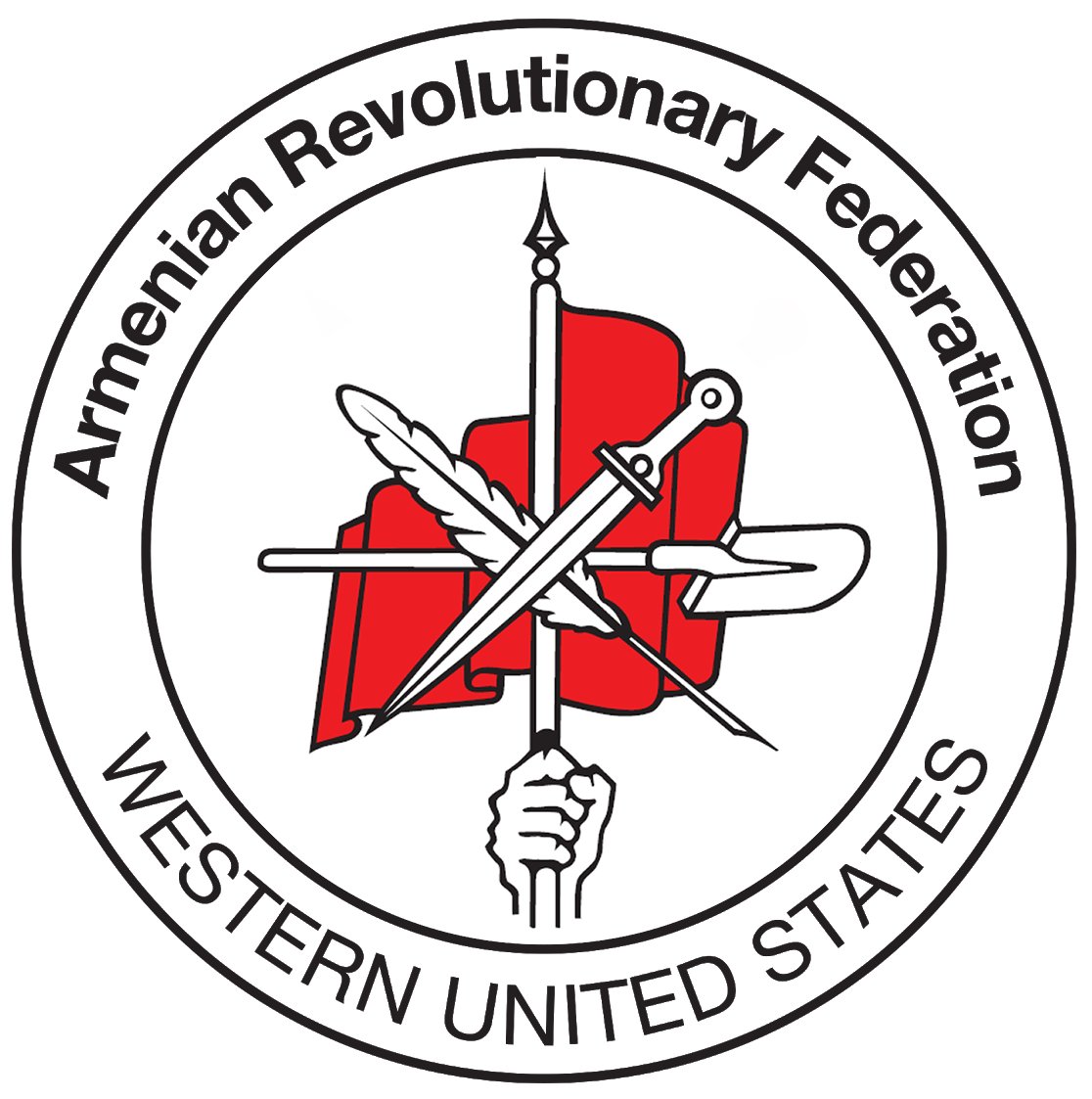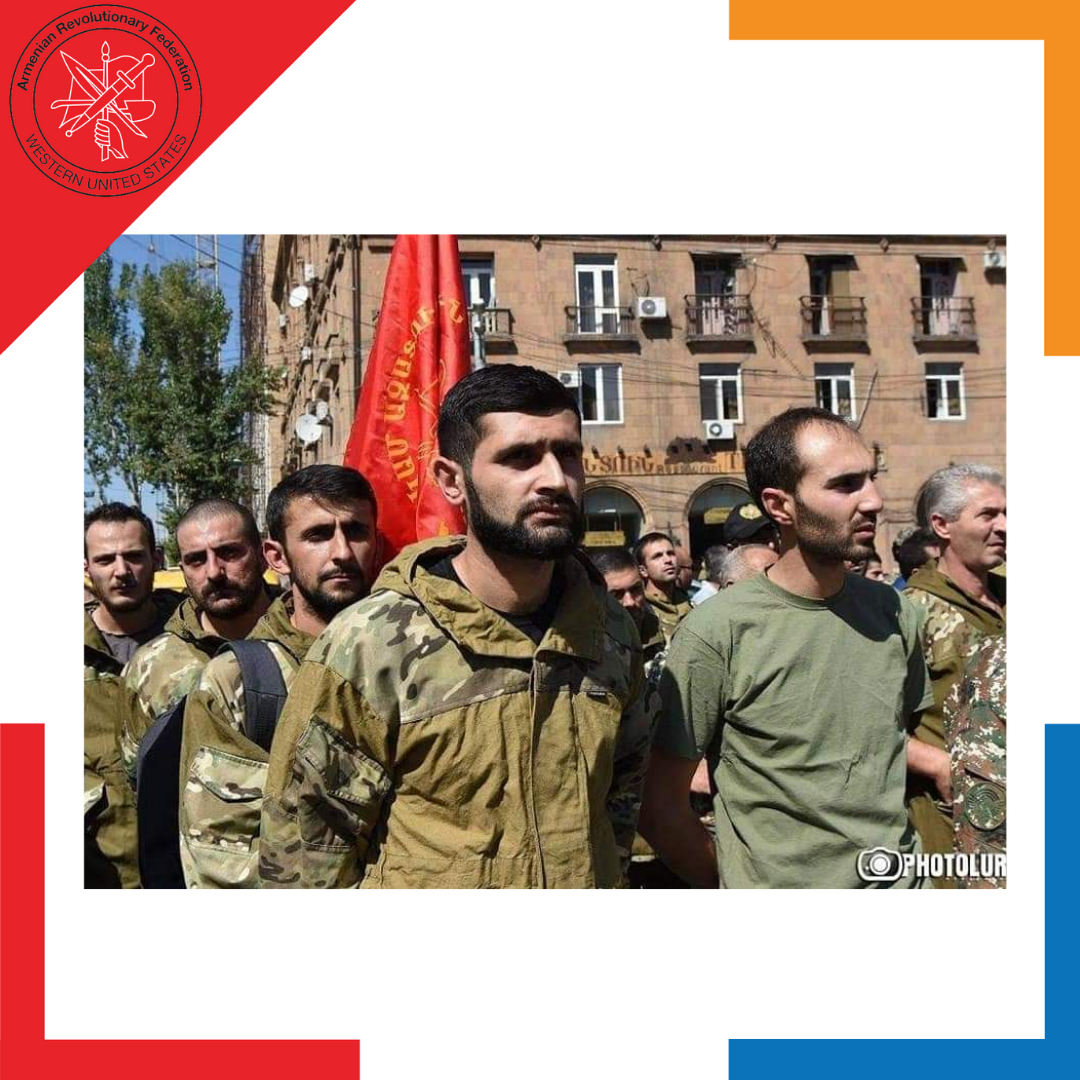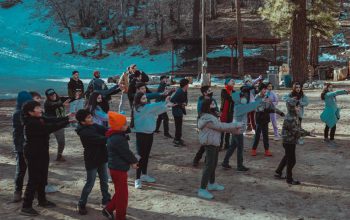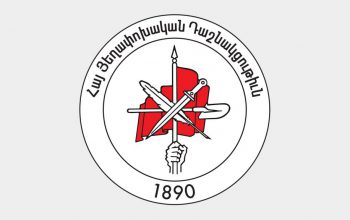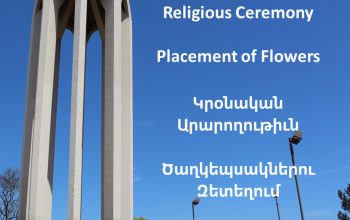On October 3, 2021 ARF Armenia Supreme Body chairman and RA National Assembly Vice-President, Ishkhan Saghatelyan published part 2 of his memoirs from the same time period last year, during the war. Below is the English translation of his moving and insightful account, originally published in Armenian.
On September 29, the Supreme Body [of the ARF in Armenia] was holding its planned session. Hrant Margaryan was present at this session. The unger presented an update on the work carried out by the ARF “Volunteer Movement” NGO. He said the first platoon is already stationed in the north, that we await command by the Defense Ministry for the second platoon to depart, and until such time we’ve decided to conduct additional training of the volunteers prior to departure, and that corresponding work has already begun at the Pyurakan campsite.
The issue of providing the platoons with the necessary material support was discussed.
The general situation [of the war] was discussed at the meeting, we already had many concerns, it was discussed to record them and send a letter to Nikol Pashinyan, but in the end we decided to meet in person to also hear his opinions on those issues.
On October 1, Hrant Margaryan, Armen Rustamyan and I met Nikol Pashinyan.
The meeting lasted about an hour, we presented a number of concerns, in particular:
We said:
1) That the evacuation of the safe areas [in Artsakh] was wrong, that at the moment there is not even a baker open in Stepanakert, and in general the support work is very poorly organized.
2) The work of the MOB [military mobilization units] is not organized, it is in a state of neglect, we brought concrete examples.
3) We pointed out that this is a to-be-or-not-to-be war, that we must put aside the old and new, past and present issues, and unite all forces.
4) We stressed the importance of properly negotiating with Russia and conducting effective work, and presented several suggestions in this regard.
He listened to the questions raised, wrote them down, and answered some of questions. In response to our request, he described the border situation and assured that they were working in all directions. He thanked us for the work of the Volunteer Movement [ARF battalion] and for the work done by the ARF ANC bodies abroad.
That day we clearly told NP that in our opinion the war will last a long time, we must evaluate the resources correctly and not make a mistake.
We met with NP 5 times during the war and this was the first meeting.
On October 2, unger Gegham Musheghyan was martyred. Gegham was the chairman of the ARF Yerevan City chapter, his friends called him “Munnat” for his persistent and demanding character. He took part in the previous two Artsakh wars, a real Armenian, a good man, a good friend…
On October 2, members of the ARF Youth Organization of Armenia – Yura, Arsen, ans Gorg were wounded; as well as older ungers Keri, Urfo, Shahen, Mayis, and Makich.
My trip to Artsakh was planned for October 4, but after hearing that news, I got the agreement of the Supreme Body ungers and headed to Artsakh [right away].
(I have already said that there was a division of responsibilities, everything had to be done as agreed).
On the way [to Artsakh] I was in constant contact with wounded ungers, who were being taken to the hospital in Sisian.
I met the boys in the hospital with great difficulty. The atmosphere of the hospital was terribly overbearing; there were dozens of wounded and widespread confusion but the doctors and nurses were collected, calm and professional; the staff was compassionate none of which could be overlooked. There were 6-7 people wounded in the guys’ room, I spoke briefly, took photos, and asked questions. They took the news of unger Gegham’s loss heavily. Arsen was very pale, he was hit in the back, I asked the guys about the other wounded, we talked, and I continued on [with my trip].
In Syunik I was accompanied by our local ungers – Gesa, Artak and the others.
During those days, these ungers were the source of contact between Yerevan and Artsakh.
After seeing the guys, we rested a bit, but had to continue on to Stepanakert.
It was around 11pm, there was news that the road was closed, it was not recommended to try and pass it at night. We decided to stay in Goris, to continue the trip at 6 in the morning.
On October 3, at 9:30 AM, we arrived at “Artsakh Park” hotel in Stepanakert,. The guys were gathered in the yard of the hotel, I briefly spoke with Davit Ishkhanyan [ARF Artsakh Central Committee chairman]. A pickup truck stopped in front of the hotel, bullet ridden from all sides. Nver was returning Gegham and one other wounded person, whose name I don’t recall at the moment, from the frontlines. I asked Nver how the guys are, he said they were surrounded and he somehow managed to breakthrough to bring Gegham and the wounded person to the hotel…
I was worried. There was no contact with the guys.
In a calm tone of voice, Davit said “don’t worry, let me try to make contact now.” Later we learned that the guys managed to break free from being surrounded, that they were safe. We decided to pack up the truck as there were supplies we needed to deliver to the guys [on the frontlines].
ARF Supreme Body member, Arthur Khachatryan said, “I will also come to see the guys.”
In addition to seeing the guys on the frontlines, the purpose of my trip to Artsakh was to hold meetings and get acquainted with the situation there.
First about the situation – Stepanakert was neglected, deserted, there were no stores open, not even bakers were open.
I was in Stepanakert on April 3, 2016 [during the Four Day War], there was active war, but it seemed that nothing was irregular, even the streets were being swept. I was so impressed, that I snapped some photos at the time.
Now the [war] situation was different. There was apparent disorganization, confusion, emptiness. It is incomprehensible until today how, from the very first day the city and many villages were evacuated.
This was my first impression.
President Robert Kocharyan and President Serzh Sargsyan were in Artsakh as well that day.
I met with Artur Vanetsyan at the hotel (he was staying in Shushi and had arrived to Artsakh three days prior). We exchanged news and updates, I called Robert Kocharyan; he said he was at Vitaly Balasanyan’s office. Artur and I went there to meet them.
At that moment, Yuri Khachaturov, Arkady Ghukasyan, Vitaly Balasanyan, I and one additional person whom I did not know were in the office with Robert Kocharyan.
After exchanging greetings and a brief conversation, we continued the meeting with just the three of us.
The President was quite familiar with the situation. He said that the enemy would do everything to break through the defensive line, we already have territorial losses in the south, but it was not significant, he said that they [the Azerbaijanis] could not do the same in north due to the mountainous geography, so they will focus on the south. He described his ideas of overcoming the situation.
We identified the main problems.
· Disorganization, including disorganization of the MOB,
· Neutralization of experienced officers,
· Inadequate behavior of the President of Artsakh.
· Measures and actions of the RA authorities that did not correspond with the [severity] of the situation.
But in order to avoid speculations, we agreed not to speak publicly about those issues, but to personally convey it directly. Our goal was not to criticize them, but to solve those issues. The country was at war.
The main topic of all conversations was working properly with the allied states at that moment.
I suggested that the three former presidents of Artsakh and Serzh Sargsyan meet with Arayik Harutyunyan to talk about all the issues that exist, from the disorganized and chaotic state of the support efforts to the inefficient use of resources.
I was told that by the suggestion of Serzh Sargsyan, Bako Sahakyan and Arkady Ghukasyan informed Arayik Harutyunyan about the request [to meet]. It was later clarified that Arayik Harutyunyan rejected the offer of a meeting.
Let me remind you that Nikol’s representatives did not leave Arayik Harutyunyan’s side. He was being monitored, in shifts – Avinyan, Mirzoyan, Papikyan, Kyaramyan.
We decided to stay in touch. I returned to the hotel, where I met Chechen and Hayk Vahan, they had just come down from the frontlines, they had a hard night, Chechen briefed about the situation and provided some updates.
At this time Stepanakert was being bombarded. Let me also say that the entire staff of ArmNews was also stationed at the hotel. Ara Saghatelyan, Arman, Karen Bekaryan, Abraham, Lika Tumanyan, Tigran Abrahamyan, Hrant Melik-Shahnazaryan, Narek Malyan and others were actively working, doing important work.
The hotel had become a headquarters of sorts.
Unger Harmik, the general commander of the volunteer platoon, came to the headquarters with Mkhitar Mkhitaryan. His eyes were injured. Before he went to the doctor, we had a brief conversation. He described the situation [at the frontlines], he was in a hurry to reach the boys.
That evening I learned that Deputy Prime Minister Dikran Avinyan was spending the night in the same hotel. I relayed a message to have him contact me. We met in the evening; my first issue was to understand whether they have a full grasp of the situation, if they realize the seriousness of the moment, and to convey all the problems that we had observed.
The conversation lasted about 40 minutes. First, I presented the problems observed by us, problems which were deepening. In particular, about the “complicated” situation of the support efforts, secondly, about the real numbers of the fallen, about the imperative to conduct relations properly with Russia and Iran. I also insisted that they take steps to engage former servicemen [the leaders] in the defense.
In my impression, he understood the complexity of the situation, assured that they would do whatever they could do in all aspects, and that he would also pass along some observations to Pashinyan. At the end of the conversation, I said. “I hope you and your team understand the extent of your responsibility and what can happen in case of your wrong steps or inaction.
On the morning of October 4, I met with Serzh Sargsyan at the Union of Freedom Fighters. We had just started the conversation when they started actively bombing; a “snaryat” fell a short distance from the building; the security officers entered the room and asked us to go down to the basement. Serzh Sargsyan said there was nothing [to worry about], all was normal, and we continued the conversation. Meanwhile, during the attacks (explosions) he did not even flinch…
Second, third blows, security forces entered the room again, in short – we went down to the basement, it was a half-destroyed room, there was no light, we continued the conversation with candlelight – what should be done? The assessment was the same, Davit Ishkhanyan joined the conversation, then V. Balasanyan, Y. Khachaturov, Levon Mnatsakanyan, Samvel Karapetyan, Vova Gasparyan, Arthur Vanetsyan, Zhanna Galstyan, Samvel Karapetyan and others also joined.
The symbolism at that moment was major. Look who was present – all people who has led victories in the previous two wars or military generals. In a state of disarray, Khachaturov was cursing, saying that they were stupid, they would take us to defeat [referring to the government officials managing the war]. Everyone had been isolated, by Nikol’s orders, everyone was offered suggestions, a way out, but … at that moment, in the bunkers of the armed forces, as you well know, there were completely different people, it was they who were deciding the fate of our nation.
At that moment, Levon Mnatsakanyan caught my eye. Silently, looking at the ceiling, he was smoking, anger in his eyes, his heart was exploding, I had seen those guys during the April war, fire was coming out of their eyes, and now … it was a dreadful scene…
Anyhow.
Mrs. Zhanna made a good suggestion at that moment, but it was not approved, it was very extreme, but maybe that would have been right.
I could not understand the behavior of the military generals and leaders who had previously liberated the country… But Nikol had been preparing for this war for a long time. You remember, in May of 2019 he announced that there were conspiratorial forces in Artsakh who would try to provoke a war, give territories to the enemy and place blame on the Armenian government… And on the 4th day of the war, he said that there are former servicemen who say that Nikol gave away the territories, sold them, you are fighting in vain, he said that he has irrefutable evidence. All this had one purpose – to isolate ex-servicemen who could change the situation and unite the people.
People were very cautious – “Let’s not do anything, so they do not blame us.”
To be honest, the political forces also had that problem, we did not speak publicly about the real situation, because a large-scale attack was starting, [they would say] “you are weakening the morale and striking a blow to the support, that’s betrayal, etc.”
In short, the government had done some good preparatory work on those issues.
I returned from Stepanakert with deep worries, but believing that everything is not lost yet, it is possible to change the situation…
Upon my return, I decided to definitely meet with President Armen Sargsyan. I wanted to personally present all the issues, everything I had seen, and call on him to take corresponding measures…
During the war, there was always a person from our political leadership in Artsakh. The Bureau chairman, Hagop Der-Khatchadourian, Armen Rustamyan and other ungers were always there.
—
PS: When writing about the days of the war, I constantly think whether to publish it all or not, but sometimes I decide to publish it, because some scoundrels try to distort the reality; they try to represent the ARF, the former presidents, and the work of the opposition falsely in general in those days.
During the war, the opposition showed an exceptionally pro-state approach – that is an evidenced fact, and regarding the remaining facts… [they will be told] in the near future …
…To be continued.
